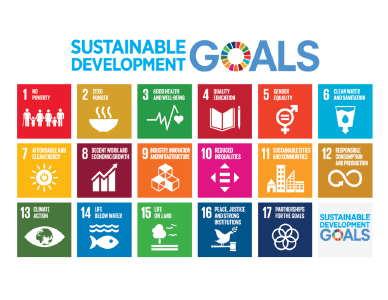Why "Susty"?
Created on September 4, 2024 10:25 EDTI will try here to put down some thoughts about what the intention of Susty Ventures is, and why I am convinced it’s a bet that can be taken now, if such a bet can even be considered early or risky given the known downsides of inaction at this stage.
Some background
Since COVID (to draw a line somewhere), awareness of sustainability has grown: we had waves of investment manager letters, ESG metrics and funds calling themselves ESG, possibly embodying a lingering sense of confusion around a booming economy marked with contradictions and social unrest. Then came the Ukraine conflict, and things went back the other way, ESG suddenly became ‘woke’ and it came to light that a lot of greenwashing was afoot.
Alongside the sketched timeline of the mainstream above, it’s worth mentioning the UN’s efforts at creating the Sustainable Development Goals (SDG) that list the elements we will need for a world that can continue to exist without eventually collapsing, ie, one that is sustainable.

As an aspiration for development, I find this preferable to degrowth, where we collectively decide to simply give up on pushing through the needle of ongoing, usually economic progress - good for emissions, less so for humanity’s prospects. One can also mention the B Labs and their B Corp certification that businesses are adequately managing their dependences, although it is not a perfect solution, and the World Economic Forum for referencing at length the idea of stakeholder capitalism, taking the interests of a wider group of people than just shareholders to ensure a business’ longevity.
a Capital idea
Going back to basic economic theory, “capitals” are resources that are transformed or consumed to provide goods and services. While the most familliar sense of the word is financial capital eg money, there is also human and natural capital that are equally as important for successful economic activity. And this is perhaps where the focal point is now: we over-value financial capital above those others, because it is easier to measure and fungible. Yet human and natural capital can very well be depleted if they aren’t managed with as much attention.
Fortunately, there is a movement to measure all kinds of capitals more accurately, and it starts with updating bookkeeping practices. The International Financial Reporting Standards (IFRS) Foundation, as the major standard-setting organisation for accounting, announced the creation of a sustanability standard in 2021 and is now ready for reporting on or after 1 Jan 2024. This is intended to better disclose business dependence on nature, and adoption is expected to trickle down to regulators worldwide, at times indirectly as in the US, the EU and New Zealand which have parallel frameworks in varying states of readiness.
back to the start
So, there are some seeds of how to assess whether our human activities are able to continue and what impact they ultimately have on the world. To be “net-positive” is quite high on the wish-list, but the balancing act this requires vs extraction makes it for the moment quite complicated.
However, new ventures seek to disrupt the status quo and thus have the advantage of not having yet their cost structure in place, and the “freedom” to explore business models that incumbents aren’t always able to follow in immediately. For this, startups need all the help to design their processes and find the equation of value creation that keeps their capitals in good shape, which will put them in a much better place to be truly resilient, in contrast to what would happen if they had not taken this approach. I’m excited for us to do our part in making these possibilities a reality at susty.vc!